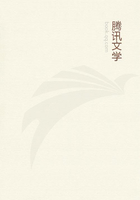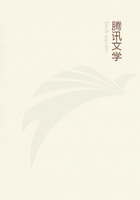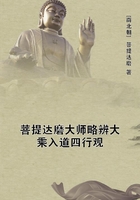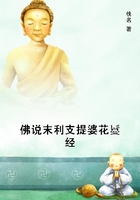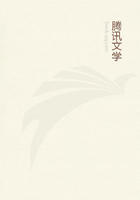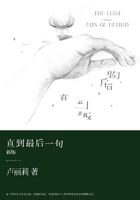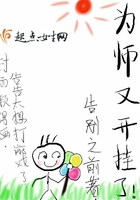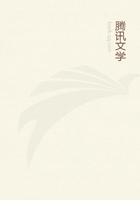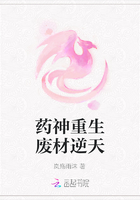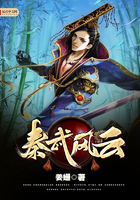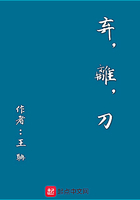The Idylls may probably be best considered in their final shape:
they are not an epic, but a series of heroic idyllia of the same genre as the heroic idyllia of Theocritus. He wrote long after the natural age of national epic, the age of Homer. He saw the later literary epic rise in the Argonautica of Apollonius Rhodius, a poem with many beauties, if rather an archaistic and elaborate revival as a whole. The time for long narrative poems, Theocritus appears to have thought, was past, and he only ventured on the heroic idyllia of Heracles, and certain adventures of the Argonauts. Tennyson, too, from the first believed that his pieces ought to be short.
Therefore, though he had a conception of his work as a whole, a conception long mused on, and sketched in various lights, he produced no epic, only a series of epic idyllia. He had a spiritual conception, "an allegory in the distance," an allegory not to be insisted upon, though its presence was to be felt. No longer, as in youth, did Tennyson intend Merlin to symbolise "the sceptical understanding" (as if one were to "break into blank the gospel of"Herr Kant), or poor Guinevere to stand for the Blessed Reformation, or the Table Round for Liberal Institutions. Mercifully Tennyson never actually allegorised Arthur in that fashion. Later he thought of a musical masque of Arthur, and sketched a scenario. Finally Tennyson dropped both the allegory of Liberal principles and the musical masque in favour of the series of heroic idylls. There was only a "parabolic drift" in the intention. "There is no single fact or incident in the Idylls, however seemingly mystical, which cannot be explained without any mystery or allegory whatever. The Idylls ought to be read (and the right readers never dream of doing anything else) as romantic poems, just like Browning's Childe Roland, in which the wrong readers (the members of the Browning Society) sought for mystic mountains and marvels. Yet Tennyson had his own interpretation, "a dream of man coming into practical life and ruined by one sin." That was his "interpretation," or "allegory in the distance."People may be heard objecting to the suggestion of any spiritual interpretation of the Arthur legends, and even to the existence of elementary morality among the Arthurian knights and ladies. There seems to be a notion that "bold bawdry and open manslaughter," as Roger Ascham said, are the staple of Tennyson's sources, whether in the mediaeval French, the Welsh, or in Malory's compilation, chiefly from French sources. Tennyson is accused of "Bowdlerising" these, and of introducing gentleness, courtesy, and conscience into a literature where such qualities were unknown. I must confess myself ignorant of any early and popular, or "primitive" literature, in which human virtues, and the human conscience, do not play their part. Those who object to Tennyson's handling of the great Arthurian cycle, on the ground that he is too refined and too moral, must either never have read or must long have forgotten even Malory's romance. Thus we read, in a recent novel, that Lancelot was an homme aux bonnes fortunes, whereas Lancelot was the most loyal of lovers.
Among other critics, Mr Harrison has objected that the Arthurian world of Tennyson "is not quite an ideal world. Therein lies the difficulty. The scene, though not of course historic, has certain historic suggestions and characters." It is not apparent who the historic characters are, for the real Arthur is but a historic phantasm. "But then, in the midst of so much realism, the knights, from Arthur downwards, talk and act in ways with which we are familiar in modern ethical and psychological novels, but which are as impossible in real mediaeval knights as a Bengal tiger or a Polar bear would be in a drawing-room." I confess to little acquaintance with modern ethical novels; but real mediaeval knights, and still more the knights of mediaeval romance, were capable of very ethical actions. To halt an army for the protection and comfort of a laundress was a highly ethical action. Perhaps Sir Redvers Buller would do it: Bruce did. Mr Harrison accuses the ladies of the Idylls of soul-bewildering casuistry, like that of women in Middlemarch or Helbeck of Bannisdale. Now I am not reminded by Guinevere, and Elaine, and Enid, of ladies in these ethical novels.
But the women of the mediaeval Cours d'Amour (the originals from whom the old romancers drew) were nothing if not casuists. "Spiritual delicacy" (as they understood it) was their delight.
Mr Harrison even argues that Malory's men lived hot-blooded lives in fierce times, "before an idea had arisen in the world of 'reverencing conscience,' 'leading sweet lives,'" and so on. But he admits that they had "fantastic ideals of 'honour' and 'love.'" As to "fantastic," that is a matter of opinion, but to have ideals and to live in accordance with them is to "reverence conscience", which the heroes of the romances are said by Mr Harrison never to have had an idea of doing. They are denied even "amiable words and courtliness."Need one say that courtliness is the dominant note of mediaeval knights, in history as in romance? With discourtesy Froissart would "head the count of crimes." After a battle, he says, Scots knights and English would thank each other for a good fight, "not like the Germans." "And now, I dare say," said Malory's Sir Ector, "thou, Sir Lancelot, wast the curtiest knight that ever bare shield, . . . and thou wast the meekest man and the gentlest that ever ate in hall among ladies." Observe Sir Lancelot in the difficult pass where the Lily Maid offers her love: "Jesu defend me, for then I rewarded your father and your brother full evil for their great goodness. . . .

